Sommersemester 2025, BA/MA Produkt-Design eLab , Exzellenzcluster , Produkt_Startseite
Knowledge in Place
— New Objects, Spaces, and Interactions for Knowledge Sharing in Museums
---
The studio project ‘Knowledge in Place’ is researching how museums can remain relevant in a digital world and respond to the needs of today‘s visitors. In cooperation with the Klassik Stiftung Weimar, product design students from weißensee school of art and design developed concepts for new objects, spaces and interactions that convey knowledge in an inspiring and personalised way. The concepts and prototypes are being developed in the context of the re-design phase of Goethe’s residence in Weimar.
--------
Museums are more than just places for sharing knowledge. They offer immersive, one-of-a-kind experiences and serve as important social spaces for connection and community-building. They allow visitors to discover new perspectives, engage in dialogue, and explore knowledge in meaningful and inspiring ways. At the same time, museums are increasingly challenged to remain relevant in a world where information is often accessed digitally and in decentralized ways.
Expectations around learning have shifted significantly in recent years. People now seek more personalized, interactive experiences and the freedom to dive deeper into topics that interest them. They want content that responds to their individual needs and allows for self-directed exploration. So, what does this change mean for museums and their role as spaces of learning?
This question was the central focus this project course undertaken by product design students. Their goal was to develop scenarios and interaction design concepts for the museum space. What new (digital) tools, layers, and approaches to knowledge transfer can we bring into museums? How can we guide visitors through exhibitions while also creating opportunities for individual exploration and personal connections?
Throughout the project, the holistic experience of a museum visit remained a key consideration. Experiencing and interacting with physical objects is a fundamental component and a unique strength of museums. Particularly in the context of knowledge transfer, multi-sensory interaction holds great potential, especially when it involves physical objects and tangible interfaces. Active interaction with the hands not only strengthens haptic and spatial perception but also promotes cognitive processes and is closely linked to our thought processes. Furthermore, physical interfaces enable a multi-layered intake of information that goes beyond visual and auditory stimuli, incorporating tactile and kinesthetic experiences.
The cooperation with the Klassik Stiftung Weimar, and particularly thanks to the input and feedback from the foundation’s experts, ensured a practice-oriented concept development and design process. Goethe’s residence and the Klassik Stiftung’s digital collection provided the thematic framework for the project.
-------
Students:
Giuliano Wai Ging Sammarro, Lara Bartos, Leif Asmus, Lion Votteler, Luica Wendt, Nicolas Roseng, Sándor Lakatos, Sara Winter, Tiana Borcherding
Supervision and Workshops:
Prof. Thomas Ness, Rike Glaser, Jörg Hugo, Simon von Schmude, Yolanda Leask
Product Design, Perspective Interaction
In cooperation with Klassik Stiftung Weimar
summer term 2025
On the foundation's side, the cooperation was supported by Dr. Dirk Wintergrün, Kristina Johannes, Annika Schlimm, and Ira Klinkenbusch."
This project is part of the MoA Design Research Studio of the Cluster of Excellence „Matters of Activity.“
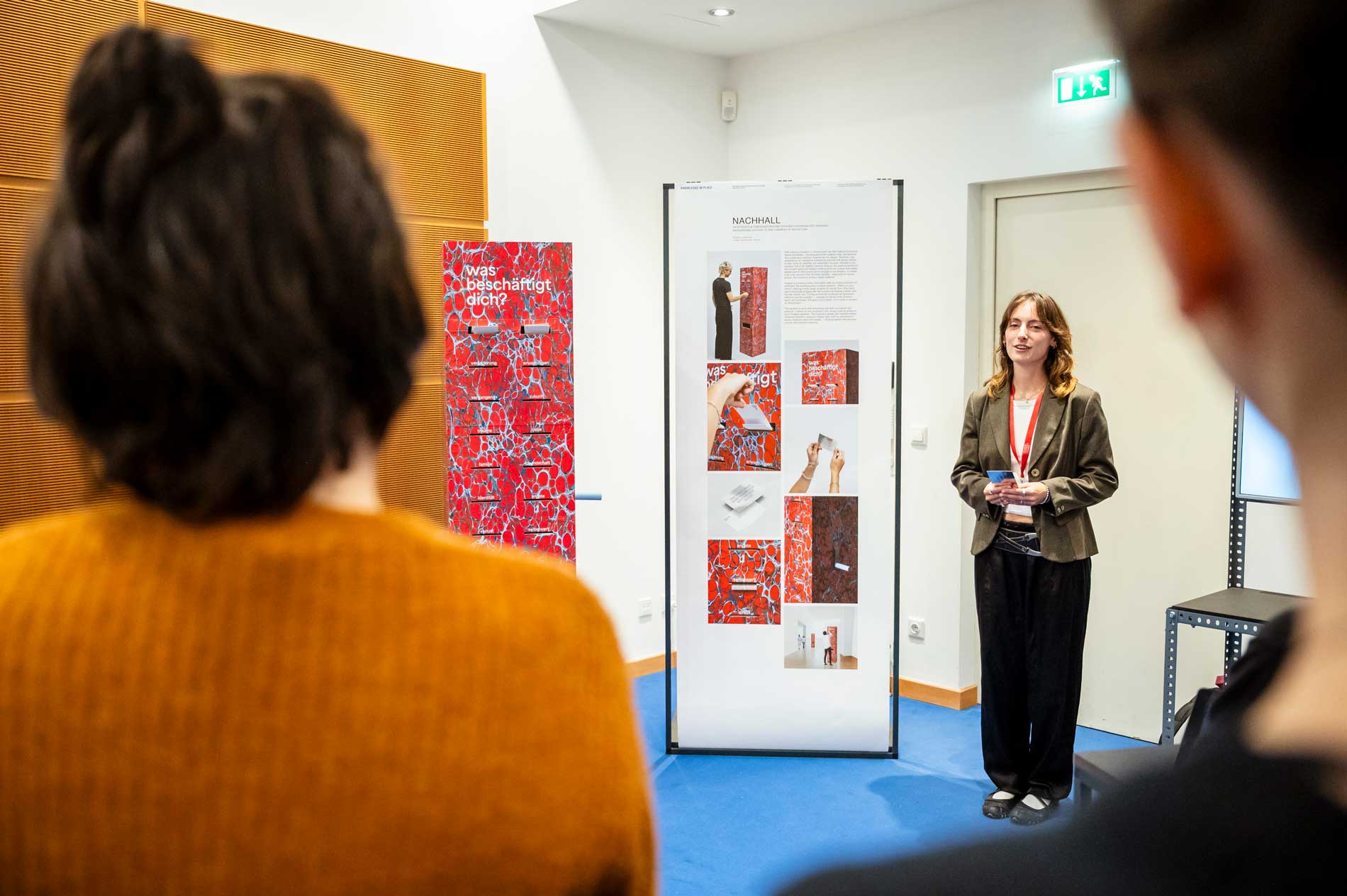
A woman presents to a small audience next to a poster display. The scene takes place in a brightly lit hallway with metal shelving units.
Alle Rechte vorbehalten Klassik Stiftung Weimar, Foto:Thomas Mueller
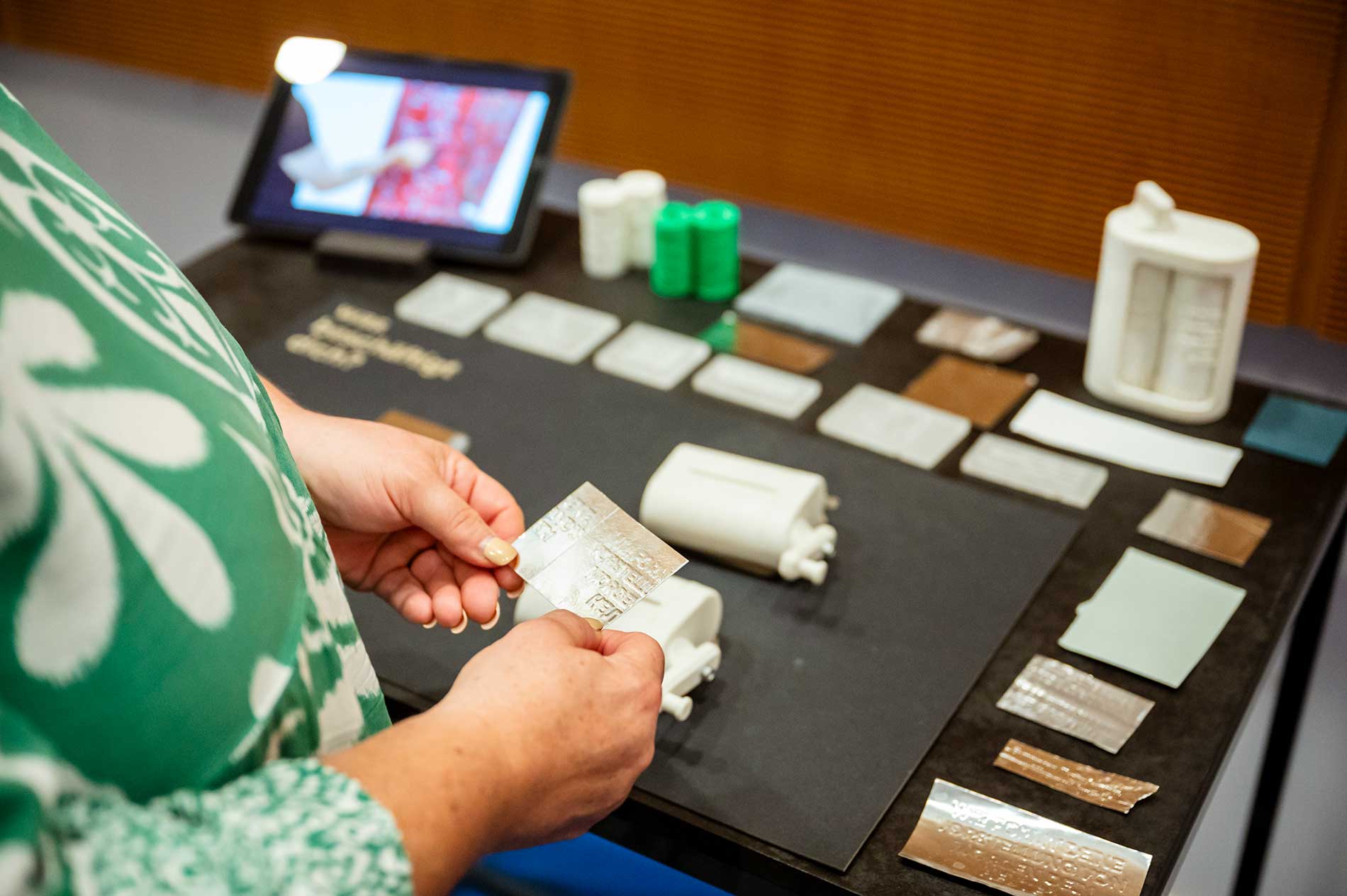
A person examines small metal samples laid out on a display with a tablet showing a similar image. The display includes various metal swatches and containers.
Alle Rechte vorbehalten Klassik Stiftung Weimar, Foto:Thomas Mueller
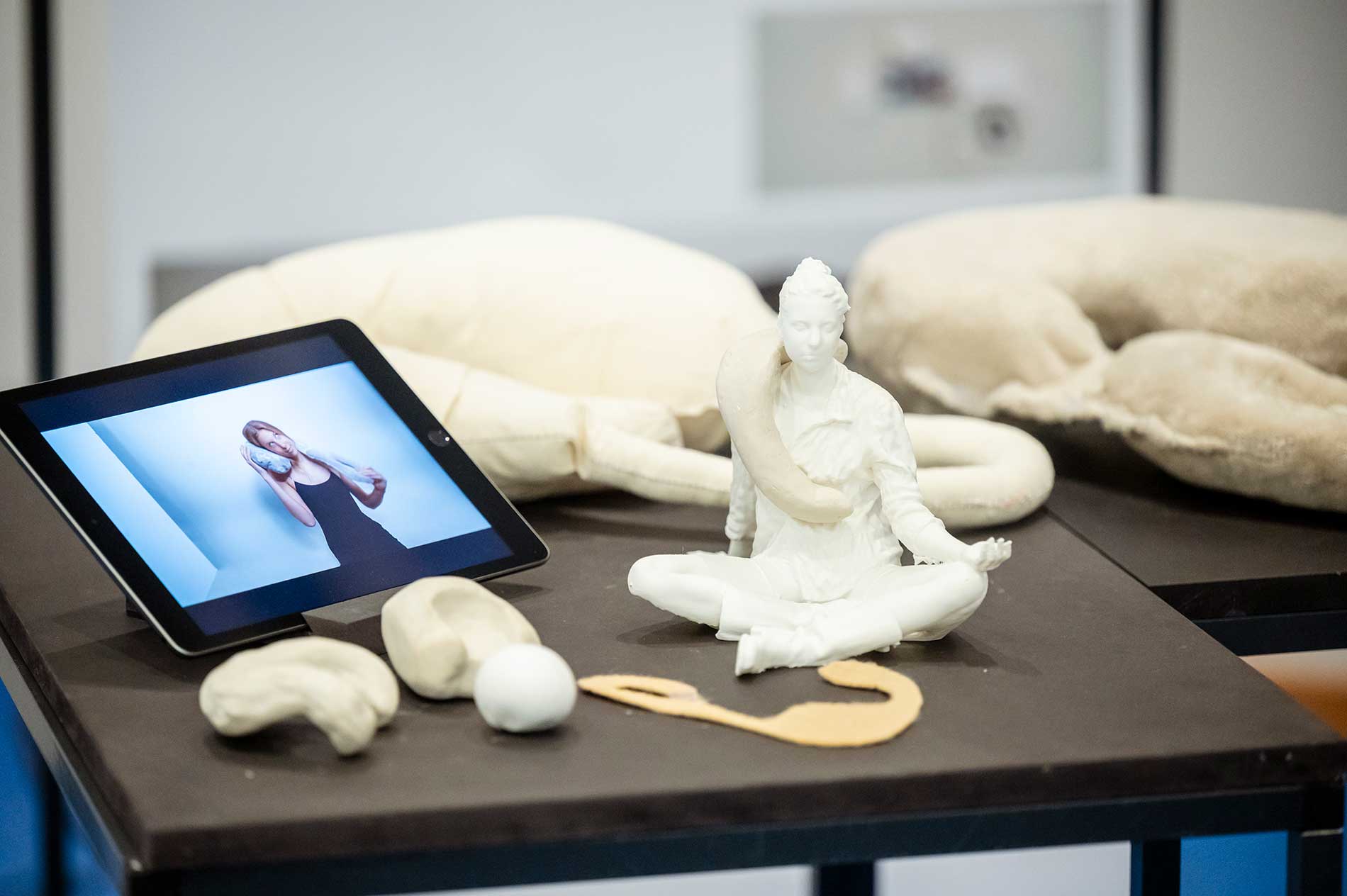
A white plaster sculpture of a person in a meditative pose sits on a table. An iPad displaying a photo of the same person in the same pose is positioned next to the sculpture.
Alle Rechte vorbehalten Klassik Stiftung Weimar, Foto:Thomas Mueller
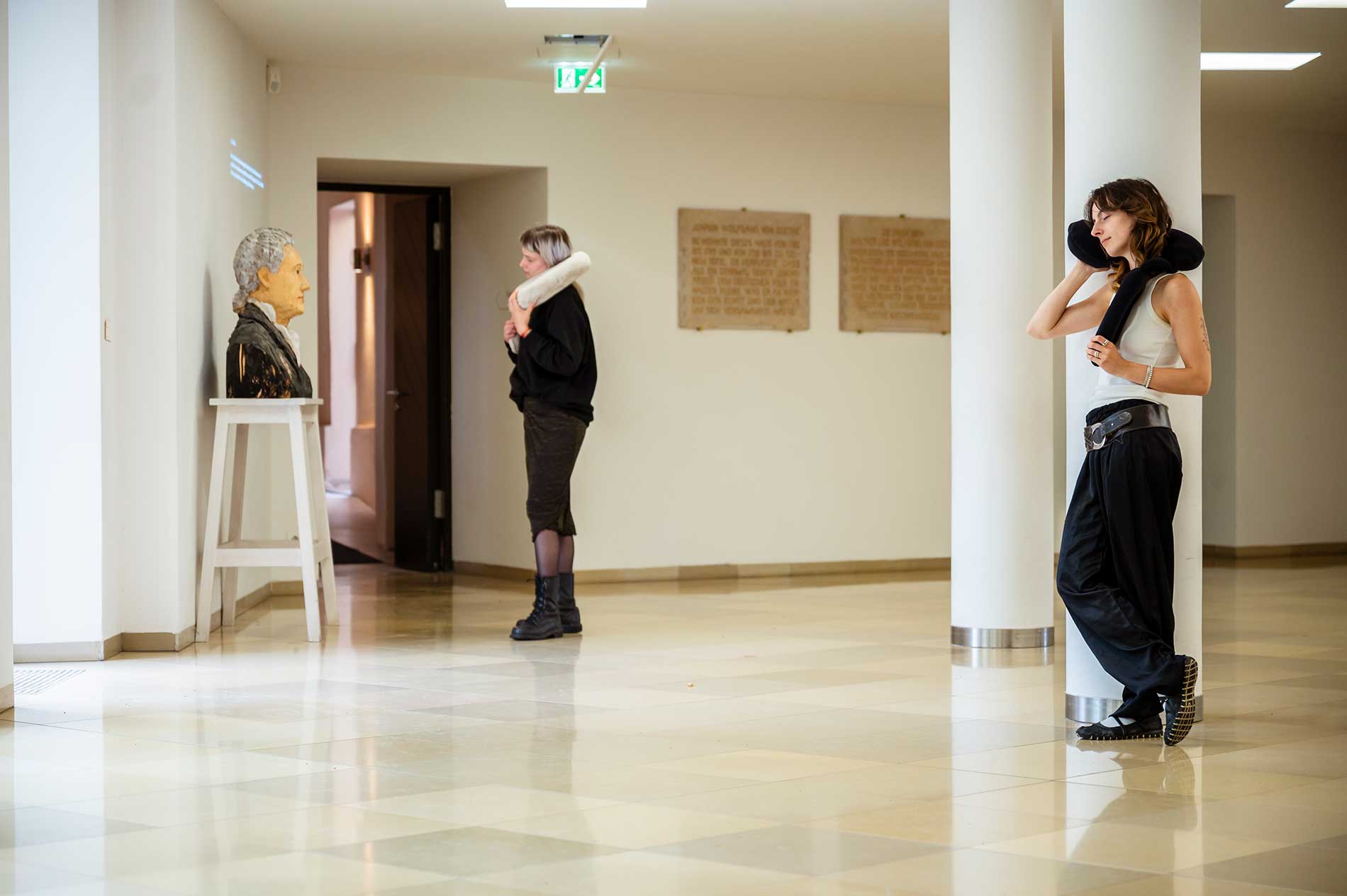
Two people stand in a museum hallway with sculptures and framed artwork on the walls. One person carries a neck pillow and leans against a pillar.
Alle Rechte vorbehalten Klassik Stiftung Weimar, Foto:Thomas Mueller
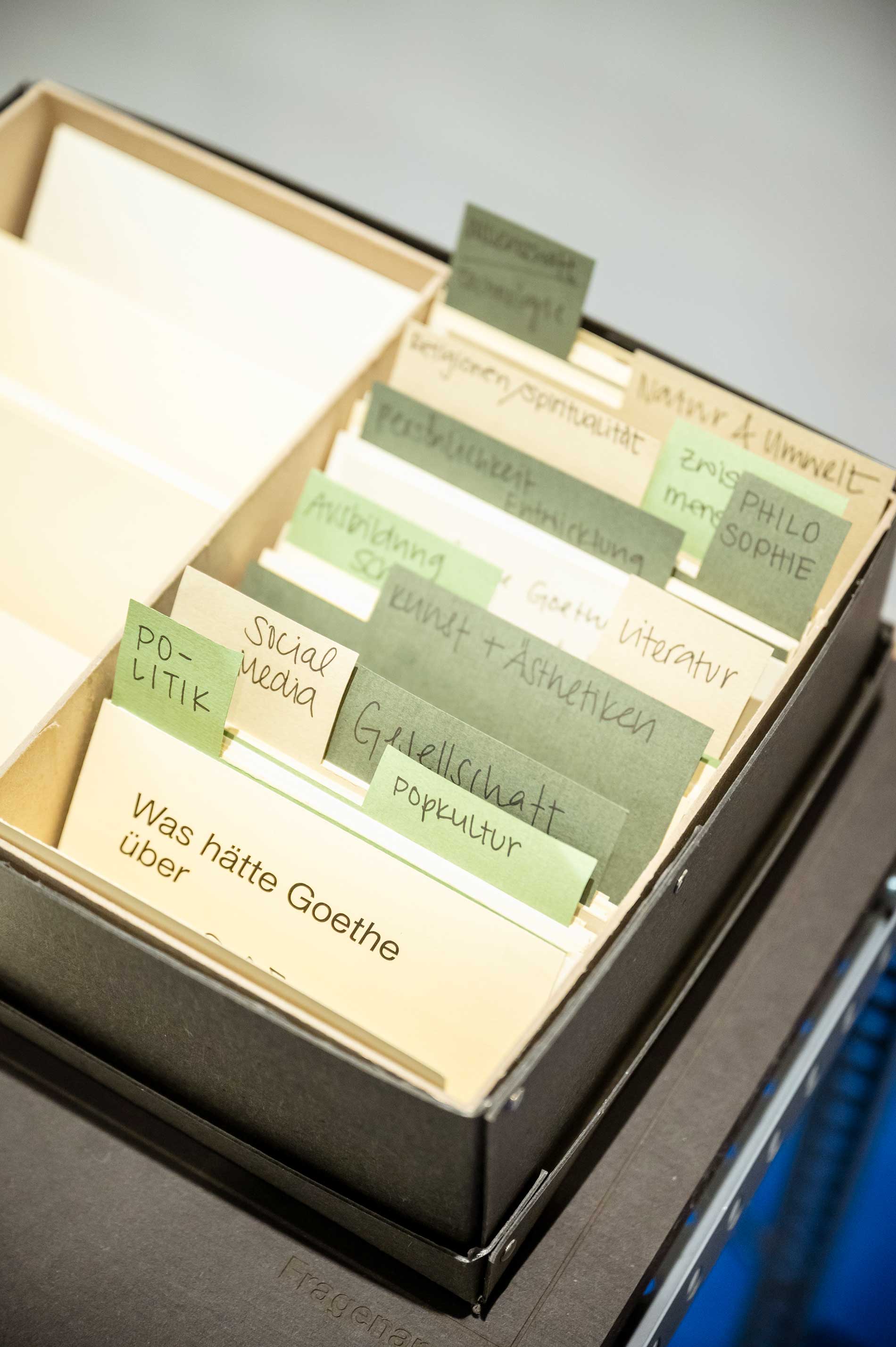
Index cards with German text are organized in a cardboard box. The cards are labeled with topics like ?Social Media? and ?Philosophy.?
Alle Rechte vorbehalten Klassik Stiftung Weimar, Foto:Thomas Mueller
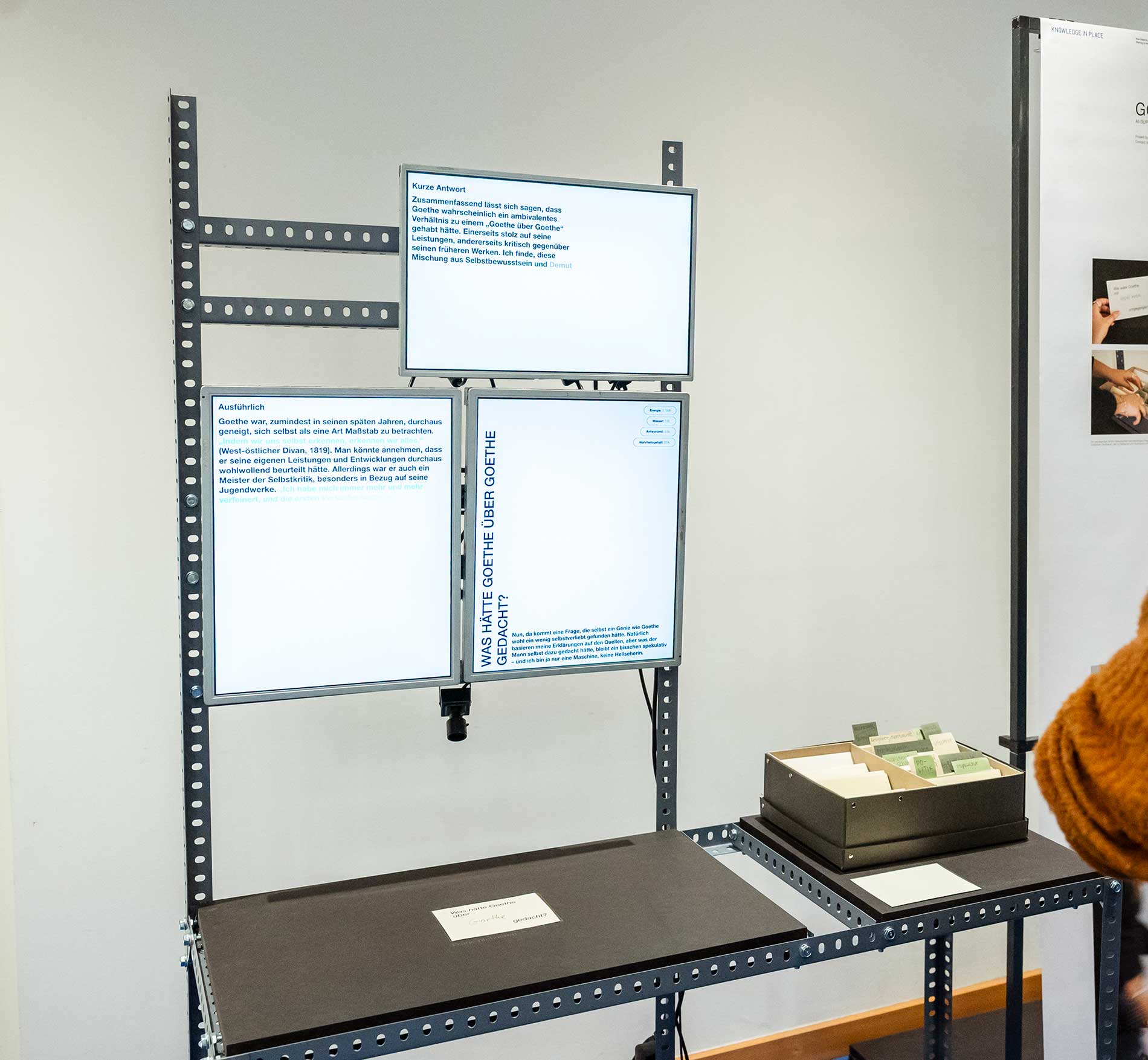
Information panel with text about Goethe is displayed in a museum exhibit. A robotic arm is positioned in front of a black and white photograph.
Alle Rechte vorbehalten Klassik Stiftung Weimar, Foto:Thomas Mueller
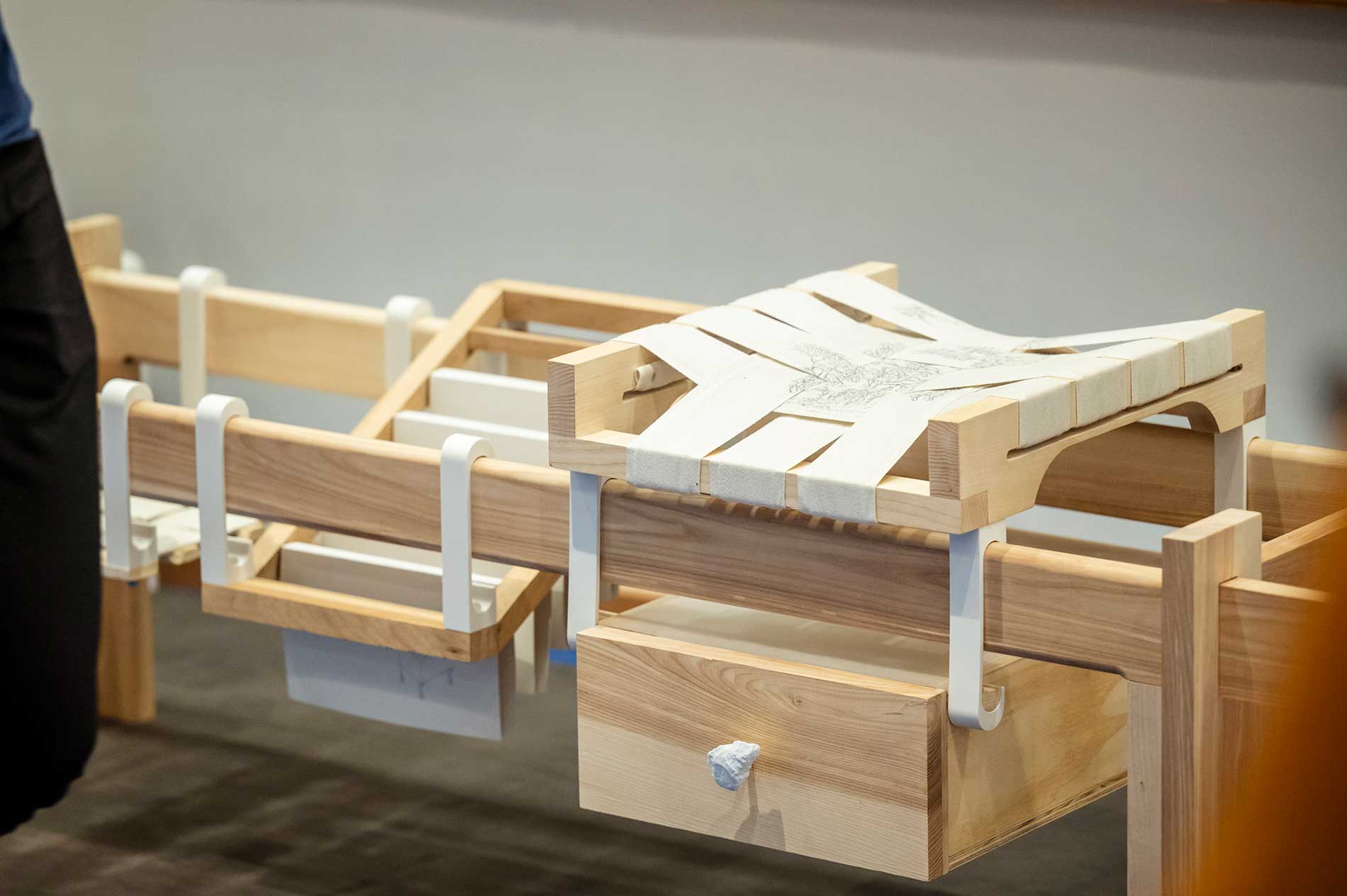
Wooden stools with woven seats are displayed in a gallery setting. One stool has a detailed drawing on its seat.
Alle Rechte vorbehalten Klassik Stiftung Weimar, Foto:Thomas Mueller
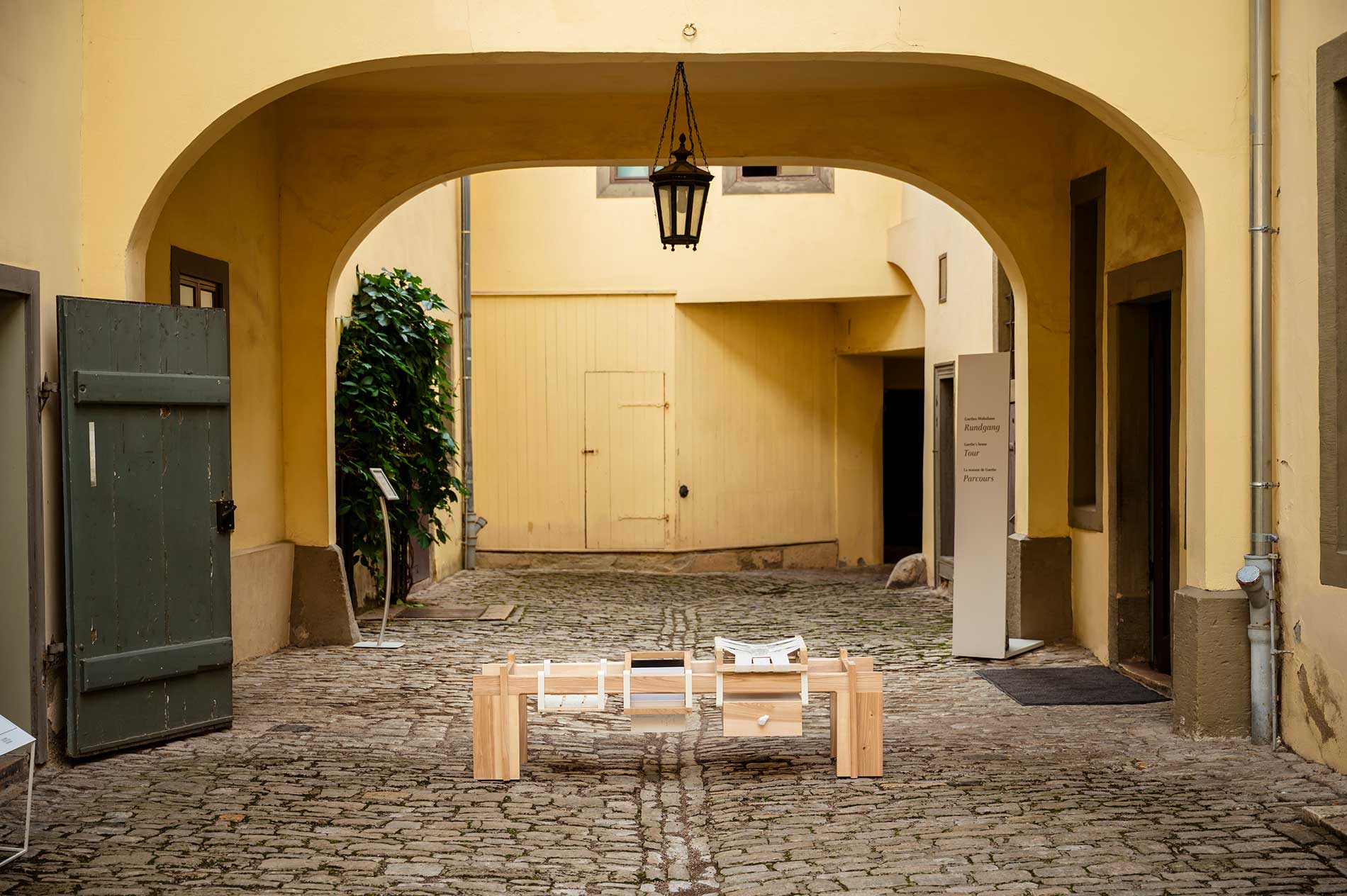
An arched passageway leads to a cobblestone courtyard with a small, modern bench. A black lantern hangs from the archway ceiling and doors are visible on either side.
Alle Rechte vorbehalten Klassik Stiftung Weimar, Foto:Thomas Mueller
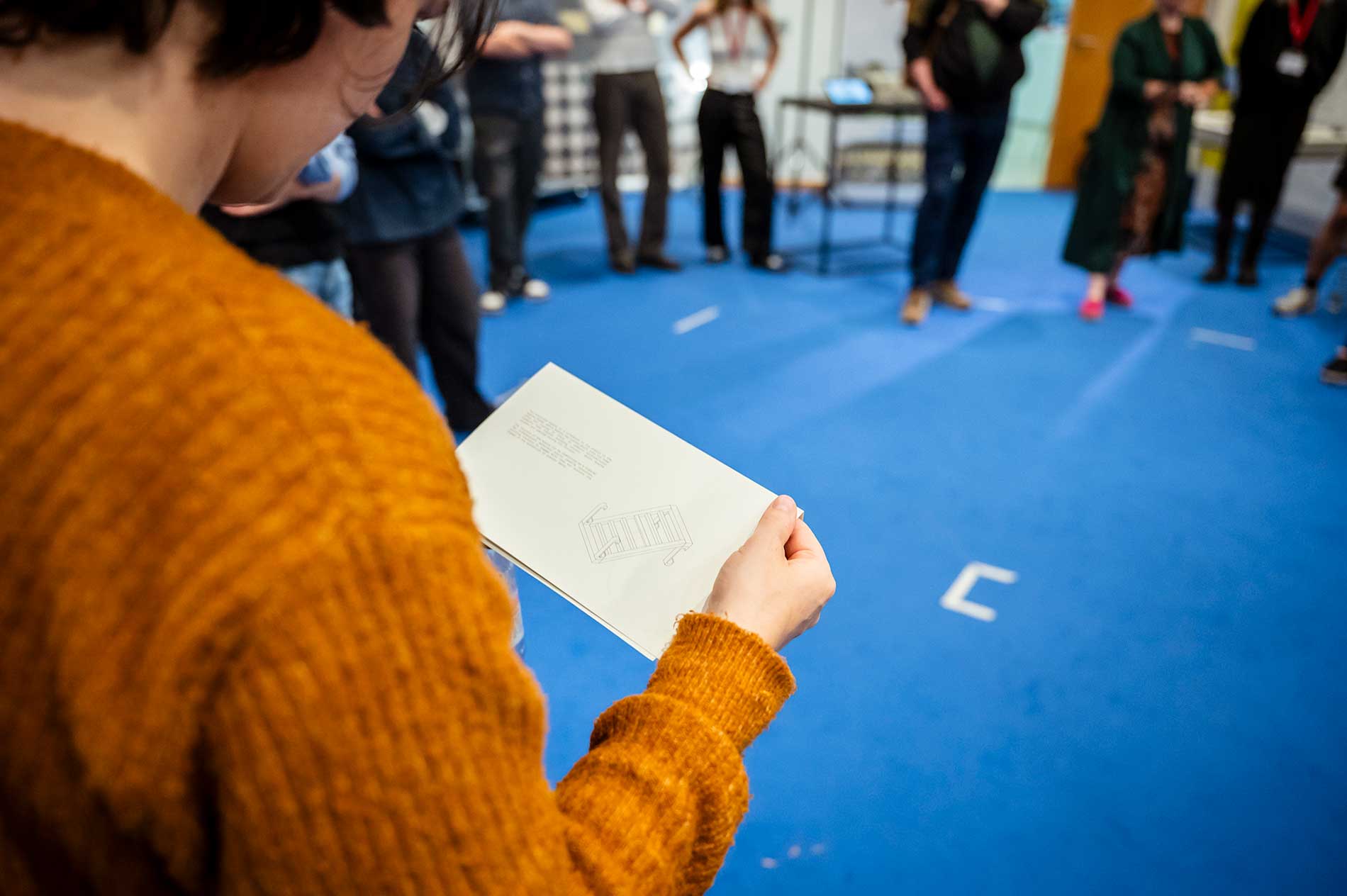
Person holding a diagram of furniture assembly instructions at an event. People stand in the background on a blue floor with marked pathways.
Alle Rechte vorbehalten Klassik Stiftung Weimar, Foto:Thomas Mueller
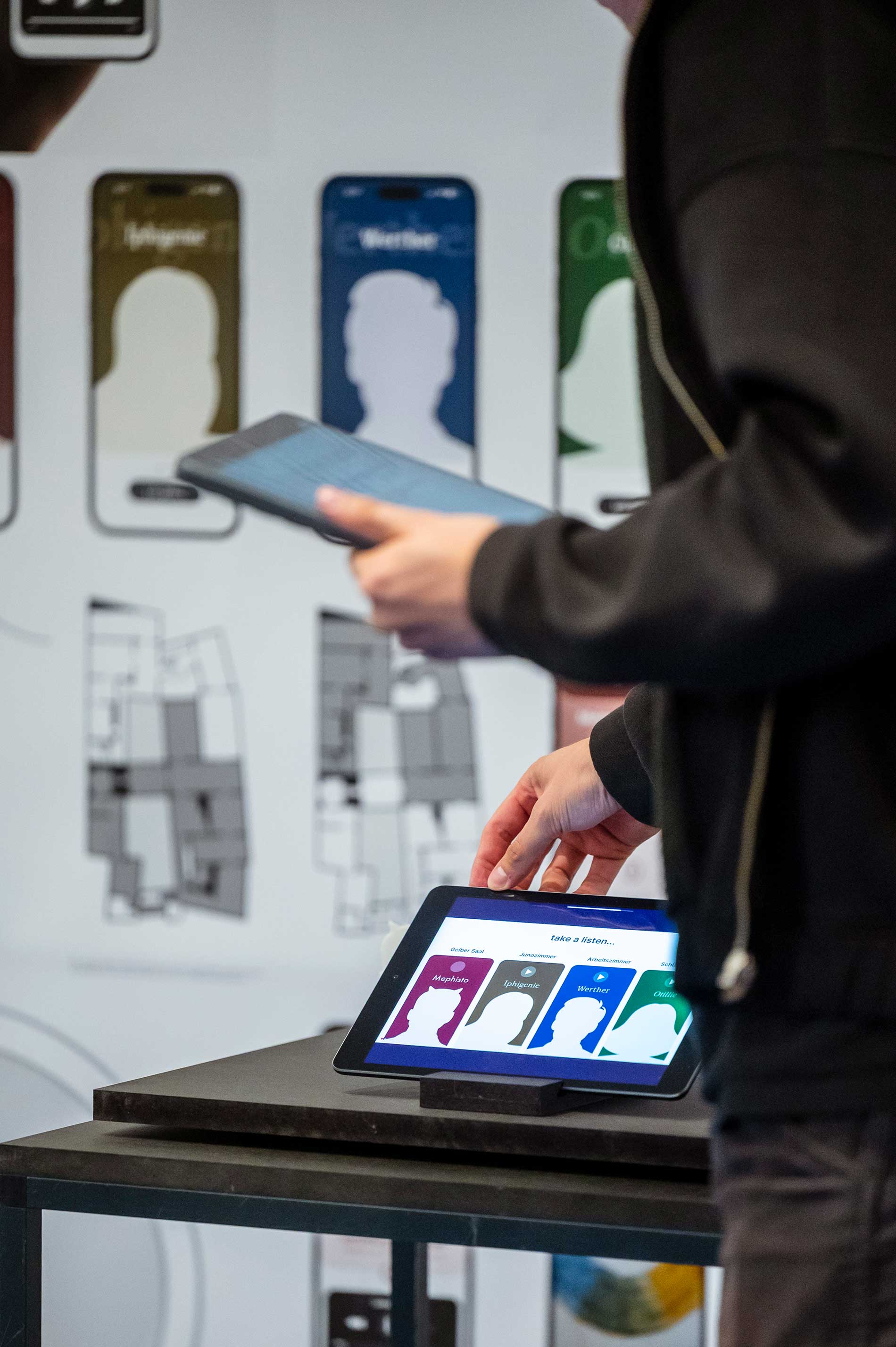
Hands holding a tablet displaying a podcast app interface, in front of a wall with podcast cover art. The image focuses on mobile podcast listening.
Alle Rechte vorbehalten Klassik Stiftung Weimar, Foto:Thomas Mueller
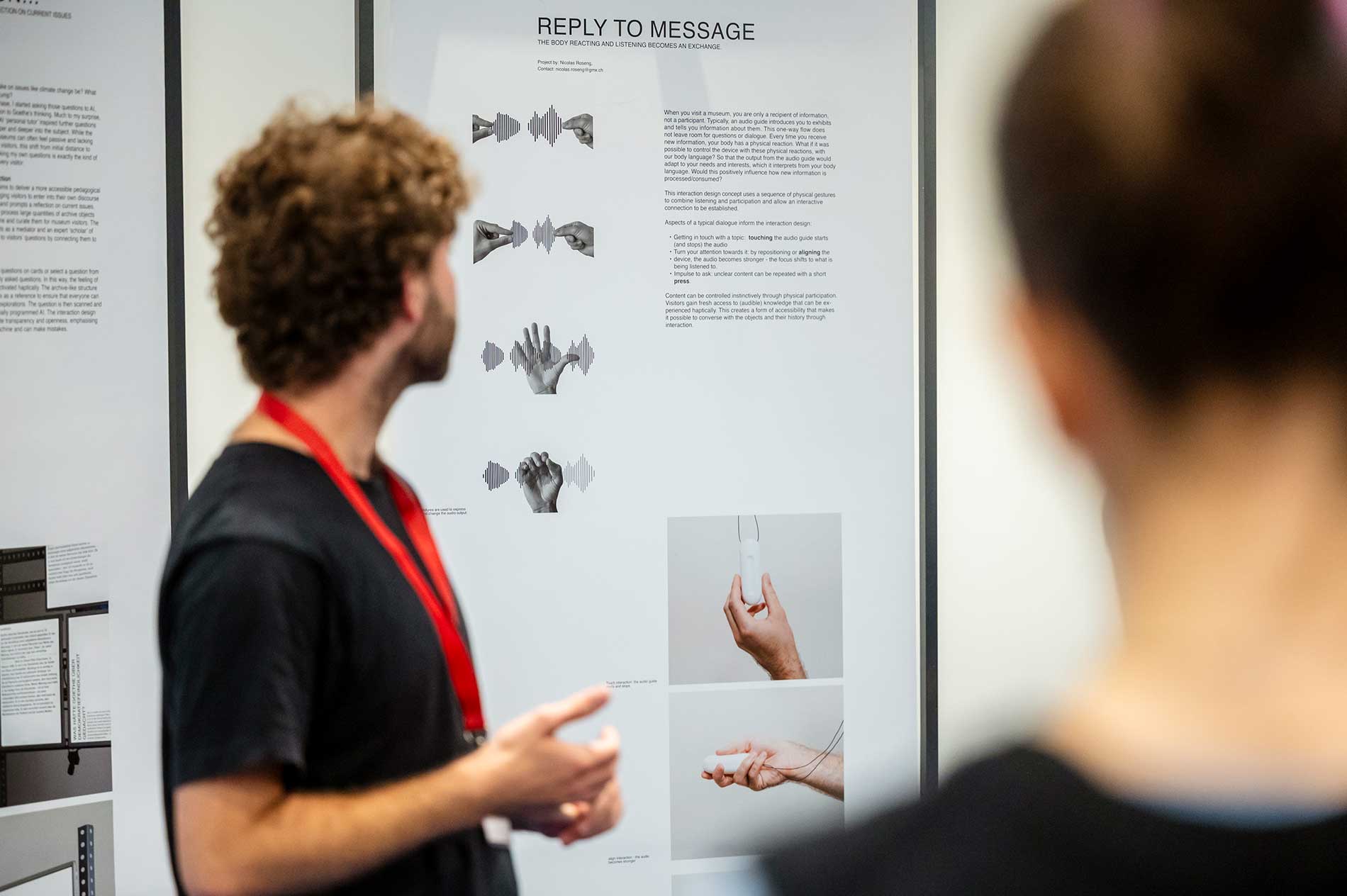
Poster with a diagram showing sound waves emanating from a speaker and entering an ear. The page includes text about the relationship between reacting and listening.
Alle Rechte vorbehalten Klassik Stiftung Weimar, Foto:Thomas Mueller
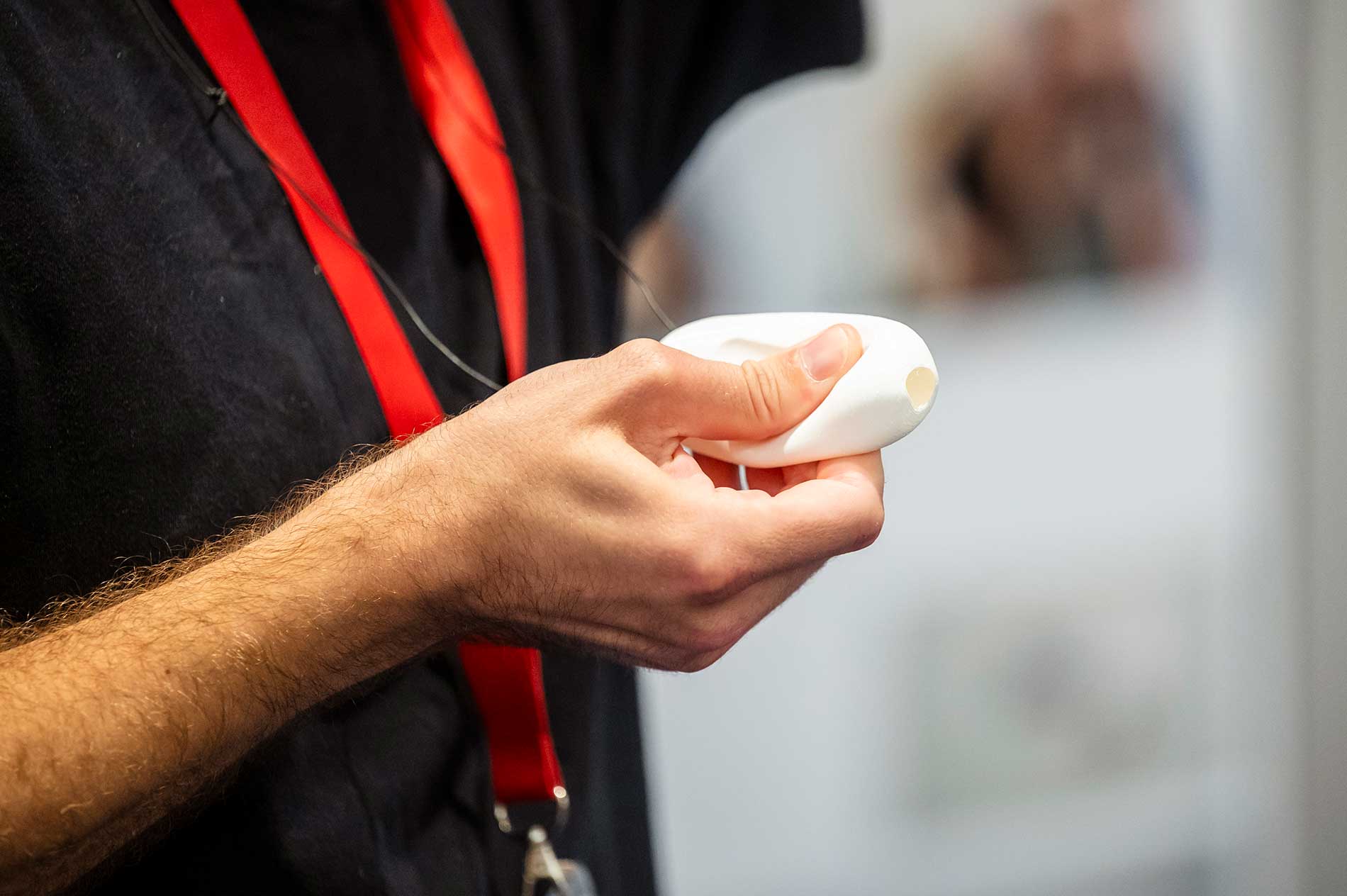
A person holds a small, white, rounded device in their hand.
Alle Rechte vorbehalten Klassik Stiftung Weimar, Foto:Thomas Mueller
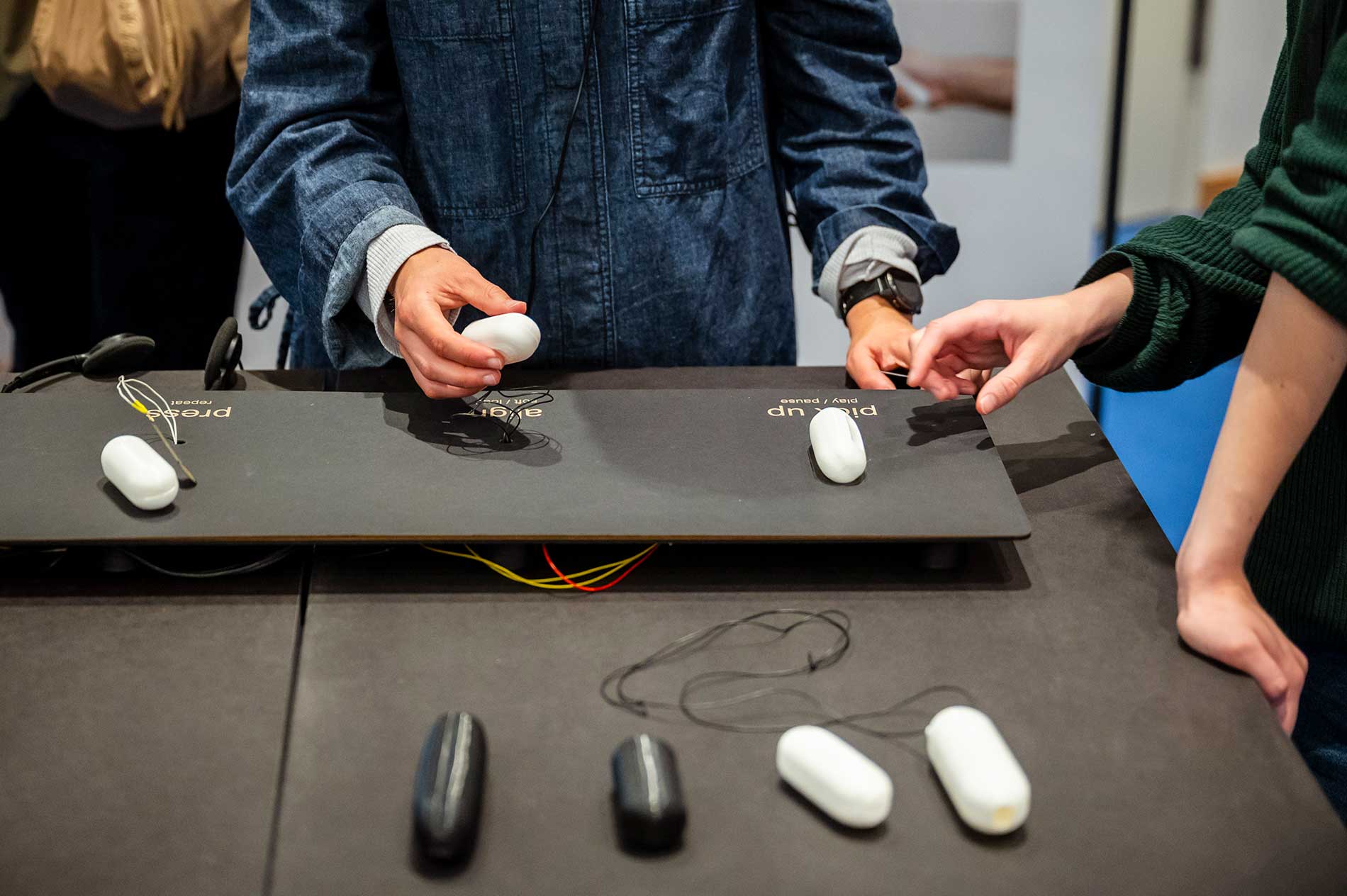
Hands interacting with white objects on a black surface. The objects include egg-shaped items and computer mice.
Alle Rechte vorbehalten Klassik Stiftung Weimar, Foto:Thomas Mueller
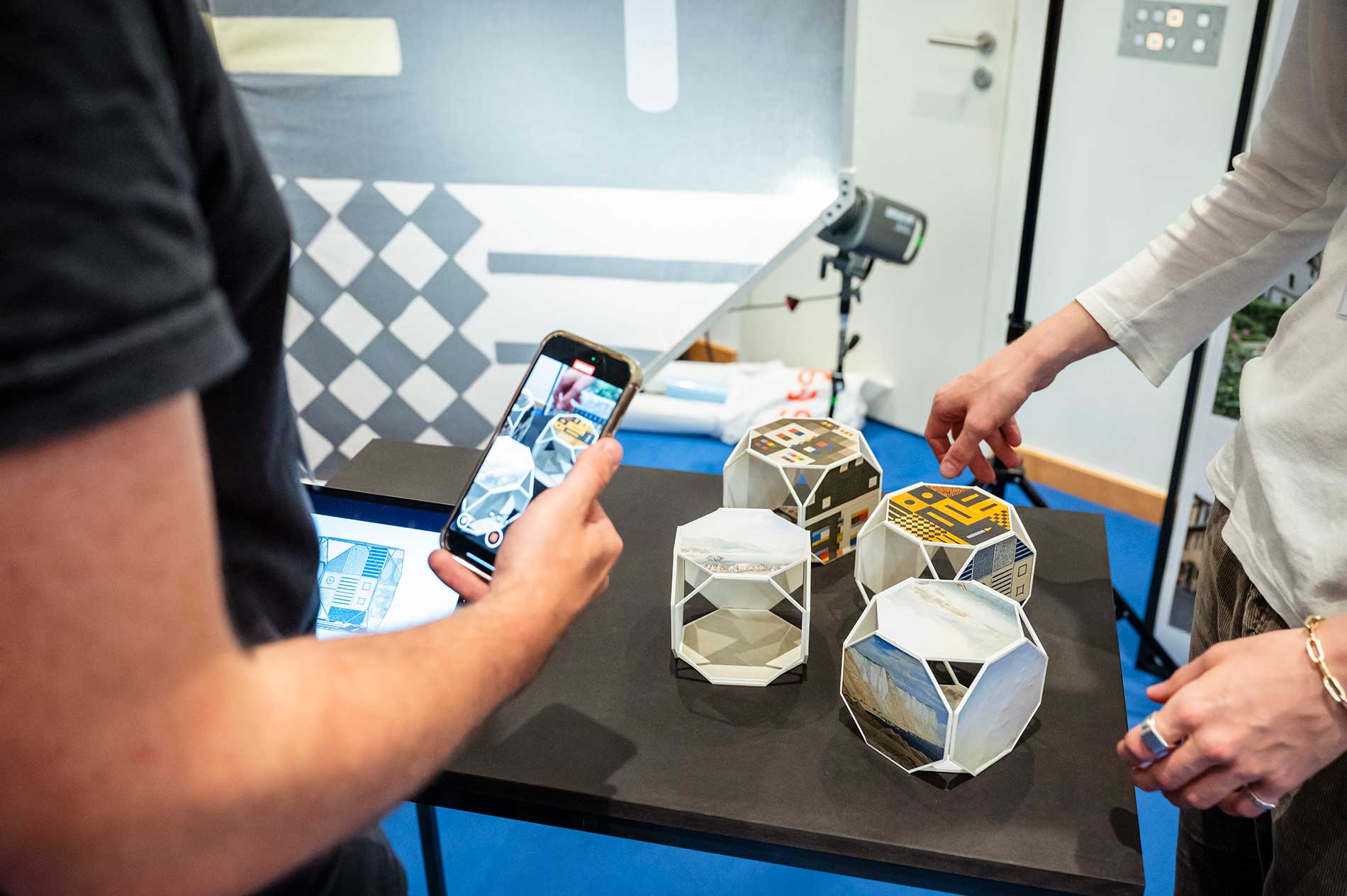
Hands holding smartphones photograph geometric sculptures on a table. Several dodecahedron-shaped objects with varying designs are visible.
Alle Rechte vorbehalten Klassik Stiftung Weimar, Foto:Thomas Mueller
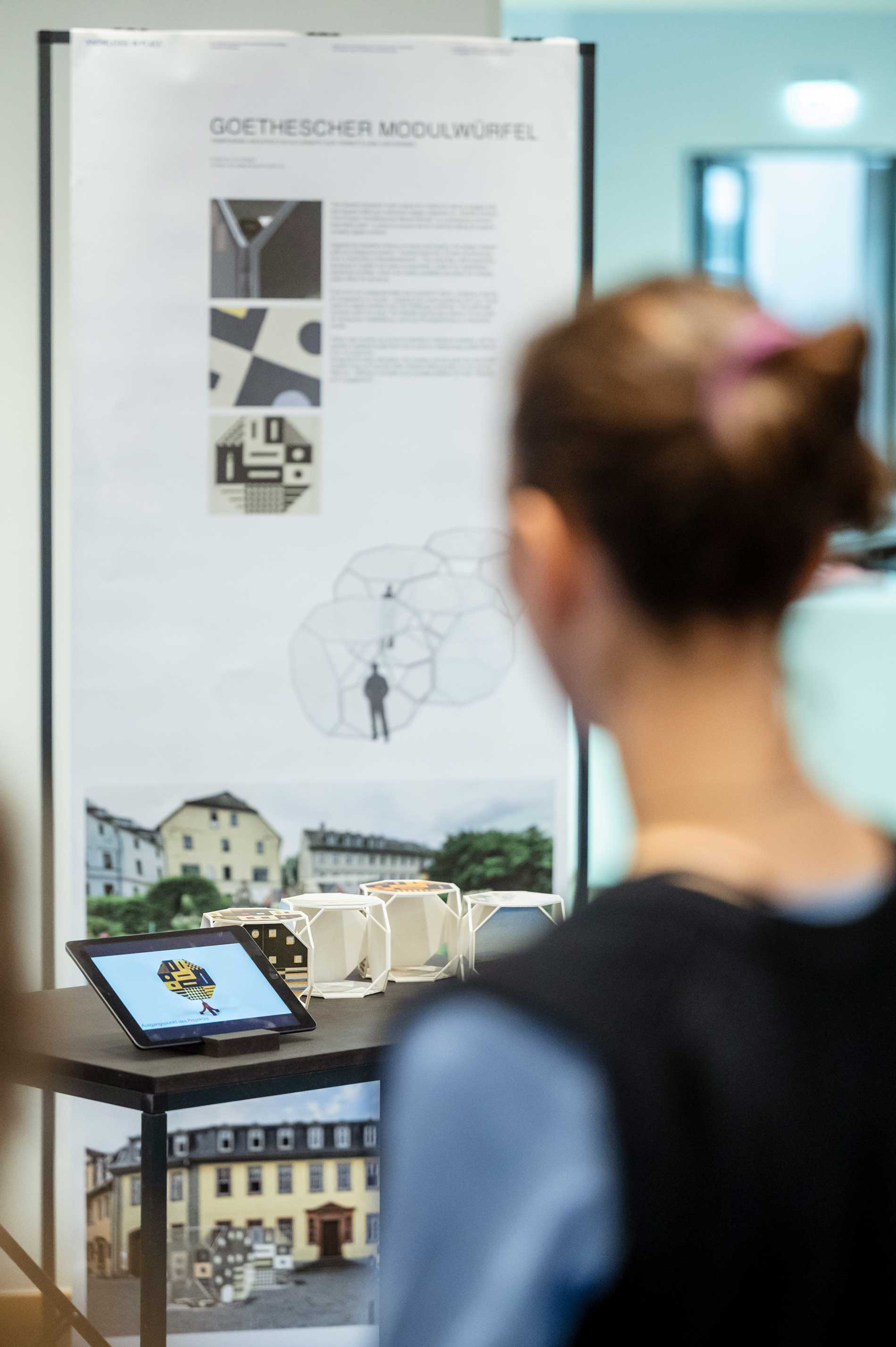
A person views an architectural rendering and informational poster at an exhibit. A tablet displaying a similar image sits on a table in the foreground.
Alle Rechte vorbehalten Klassik Stiftung Weimar, Foto:Thomas Mueller